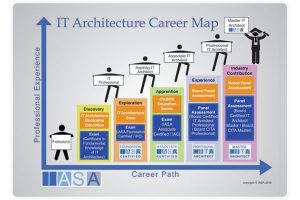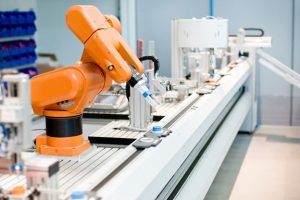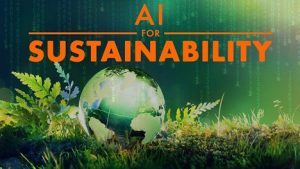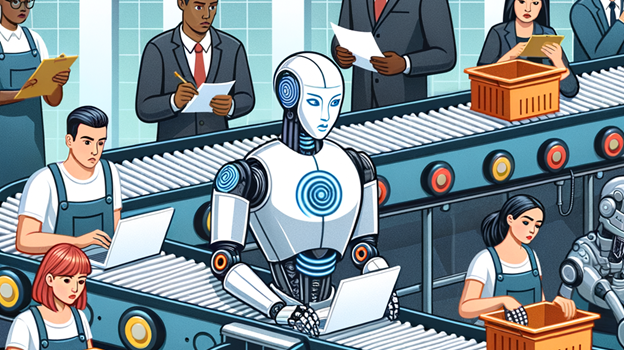
Automation has been a game-changer in various industries, increasing efficiency and productivity. However, the rise of AI and automation has also raised concerns about the potential displacement of human workers. While it is true that some jobs may become obsolete due to automation, human collaboration remains essential for AI to complement, rather than replace, jobs. As we navigate the impact of AI on global job markets, it is crucial to recognize the importance of human skills such as critical thinking, problem-solving, and emotional intelligence. These skills are difficult to replicate with AI, making human workers indispensable in the workforce of the future.
Redefining Career Pathways

The rapid advancement of AI technology is transforming job markets globally, leading to the redefinition of career pathways in an AI-driven economy. As automation takes over routine tasks, workers are required to adapt and acquire new skills to stay relevant in the job market.
AI is creating new job opportunities in emerging industries such as data science, machine learning, and artificial intelligence. These high-skilled jobs require specialized knowledge and expertise, highlighting the importance of continuous learning and upskilling in today’s fast-paced economy.
To thrive in the age of AI, individuals need to embrace lifelong learning and be open to acquiring new skills and knowledge. By staying agile and adaptable, workers can navigate the changing job landscape and secure their place in the workforce of the future.
AI in Financial Services
The adoption of AI in financial services is revolutionizing operations in the industry, from fraud detection and risk assessment to customer service and investment management. While AI has the potential to enhance efficiency and accuracy in financial services, its widespread adoption may also impact global job markets.
AI-powered algorithms are increasingly being used to automate tasks that were previously performed by human workers, leading to concerns about job displacement in the financial services sector. However, AI also creates new job opportunities in areas such as data analysis, algorithm development, and cybersecurity.
As financial institutions embrace AI technology, it is essential for workers to adapt and acquire the skills needed to thrive in a digital-first environment. By leveraging AI to augment their capabilities, financial professionals can stay competitive and drive innovation in the industry.
Promoting Lifelong Learning

The impact of AI on job markets worldwide underscores the importance of promoting lifelong learning and continuous skill development. As automation and AI technology reshape industries and job roles, workers need to adapt and acquire new skills to remain relevant in the workforce.
Lifelong learning is essential to adapt to the advancements in AI and technology, enabling individuals to stay ahead of the curve and seize new opportunities in emerging industries. By investing in education and training programs, workers can acquire the skills needed to thrive in the digital economy.
Employers also play a crucial role in promoting lifelong learning by providing opportunities for upskilling and reskilling to their workforce. By fostering a culture of continuous learning and innovation, organizations can empower their employees to embrace change and drive growth in the age of AI.
Fostering Inclusive Growth
The impact of AI on job markets worldwide highlights the need for strategies to foster inclusive growth and ensure that the benefits of AI technology are shared equitably across society. As automation and AI continue to reshape industries and job roles, it is essential to address the challenges of job displacement and inequality.
One way to foster inclusive growth amidst AI advancements is to invest in education and training programs that equip workers with the skills needed to thrive in the digital economy. By providing access to quality education and training, individuals can adapt to the changing job landscape and secure their place in the workforce.
Additionally, policymakers and industry leaders must work together to create opportunities for all workers to participate in the digital economy. By promoting diversity and inclusion in the workforce, we can ensure that the benefits of AI technology are accessible to everyone, regardless of background or skill level.
Revolutionizing Manufacturing Processes

AI’s impact on job markets is a critical concern, particularly in industries such as manufacturing where automation and AI technology are transforming operations. As AI continues to revolutionize manufacturing processes, workers are faced with the challenge of adapting to new technologies and job roles.
AI-powered robots and machines are increasingly being used to automate tasks in manufacturing, from assembly and quality control to inventory management and logistics. While automation can enhance efficiency and productivity, it also raises concerns about job displacement and the future of work in the manufacturing sector.
To navigate the impact of AI on manufacturing job markets, workers need to acquire new skills and knowledge to stay relevant in the digital age. By embracing technology and upskilling in areas such as robotics, programming, and data analysis, workers can secure their place in the evolving manufacturing industry.
AI in Environmental Sustainability

AI has the potential to create new job opportunities in the environmental sustainability sector, from renewable energy and waste management to climate change mitigation and conservation efforts.
By leveraging AI technology, organizations can drive innovation and sustainability in traditional industries while creating new jobs in emerging sectors.
However, the adoption of AI in environmental sustainability may also lead to job displacement in traditional sectors that rely on manual labor and routine tasks. As AI technology automates repetitive tasks, workers in these industries need to acquire new skills and adapt to the changing job landscape.
To promote inclusive growth and ensure that the benefits of AI technology are shared equitably, policymakers and industry leaders must invest in education and training programs that equip workers with the skills needed to thrive in the digital economy. By fostering a culture of lifelong learning and innovation, we can create a more sustainable and inclusive future for all.
Empowering Remote Workforces
AI technology is transforming job markets globally, empowering remote workforces to collaborate and innovate in a digital-first environment. As organizations embrace AI to streamline operations and enhance productivity, remote workers are leveraging technology to stay connected and productive from anywhere in the world.
AI-powered tools such as virtual assistants, collaboration platforms, and project management software enable remote workers to communicate effectively, collaborate on projects, and access information in real-time. By leveraging AI technology, remote workforces can overcome geographical barriers and drive innovation in a globalized economy.
To thrive in the age of AI, remote workers need to adapt to new technologies and acquire the skills needed to succeed in a digital-first environment. By embracing remote work opportunities and leveraging AI tools, individuals can stay competitive and drive growth in the evolving job market.
Leveraging AI for Social Good
AI technology has the potential to create new job opportunities in emerging industries such as healthcare, education, and social services. By leveraging AI for social good, organizations can drive innovation and address complex societal challenges while creating new jobs in high-demand sectors.
While AI may automate routine tasks and processes, it also creates opportunities for workers to focus on high-skilled and value-added activities. By leveraging AI technology to augment their capabilities, workers can enhance their productivity and drive innovation in their respective industries.
To thrive in the age of AI, individuals need to adapt to new technologies and acquire the skills needed to succeed in a digital-first economy. By embracing AI for social good and leveraging technology to drive positive change, workers can create a more sustainable and inclusive future for all.










